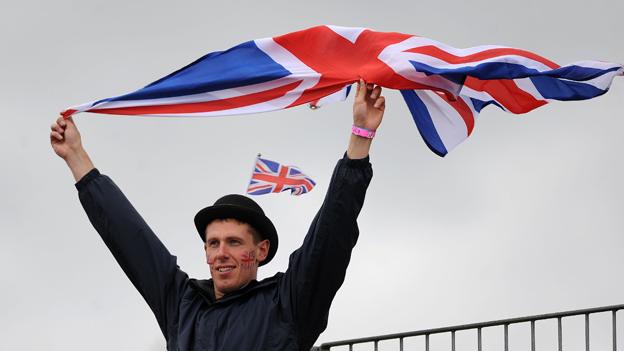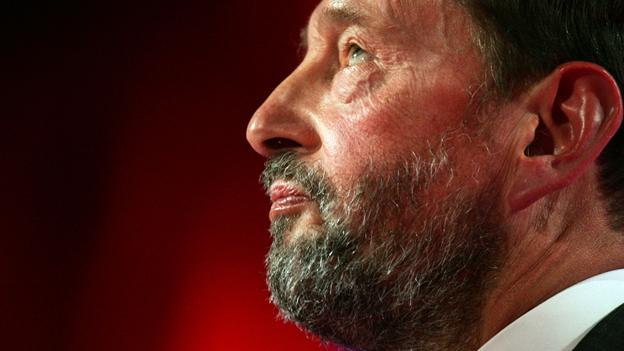Should teachers 'promote' British values?
- Published
- comments

Come September and every school in England will be required to promote British values.
Promoting something is not the same as teaching something or having respect for something. One can respectfully disagree. One can inform without endorsing.
What Michael Gove is demanding is that every school in England tell pupils that British values are as good as or better than other people's values.
The distinction is important. Independent schools, academies and free schools must already ensure pupils "respect" British values. "This will be strengthened so that schools must 'promote' British values," says the Department for Education.
"We want to create and enforce a clear and rigorous expectation on all schools to promote the fundamental British values of democracy, rule of law, individual liberty and mutual respect and tolerance of those with different faiths and beliefs," department officials explain.
Is that what teachers should do? We may hold these values dearly. We may believe they offer the best chance for a stable and happy society. We may regard them as superior to all others. But should children be told that as a matter of fact?
Let us take the first of those values - democracy. "Democracy is the worst form of government," Winston Churchill told the House of Commons in 1947, "except for all those other forms that have been tried from time to time."
It was a good joke, but also a reminder that there has long been a debate about the best systems of governance. Would a teacher who drew pupils' attention to the weaknesses of democracy be in breach of his duty to promote it?
Would promoting the rule of law make it more difficult for schools to teach about civil disobedience? The works of Thomas Hobbes, John Locke and John Stuart Mill wrestle with the concept of individual liberty. What definition of this controversial philosophical concept are teachers to push?
And when it comes to mutual respect and tolerance of those with different faiths and beliefs, how respectful and tolerant should one be? Traditional religious and cultural views on homosexuality, the role of women or sex outside marriage are deeply offensive to many people.
The phrase "British values" is used to mean contradictory things. For some, it is about British as opposed to foreign values, reflecting the traditional conservative instincts of the population. For others, it is about shared values of tolerance and broadmindedness within a multicultural society, a progressive ideal.

Former home secretary David Blunkett urged ethnic minorities to become "more British"
These two definitions do not sit happily together. One is a singular fixed identity, the other is an evolving multi-faceted concept. You cannot have both at the same time.
This is not the first time in recent years that politicians have pressed the button marked "British values". A decade ago Gordon Brown encouraged the nation to "think of a Britain rediscovering the shared values that bind us together". David Blunkett, as home secretary, urged ethnic minorities to become "more British" and swear an oath of allegiance.
After 9/11 in 2001, and again after the 7/7 bombings in London in 2005, there was much debate as to how our moderation should suffocate extremism, a belief that British tolerance and fair play be deployed as a weapon against Al Qaeda.
Now Michael Gove demands that England's schools should join the fight by promoting British values. But is that what education is about? It could be argued that instructing schools to be propagandists for anyone's values is a thoroughly un-British thing to do.